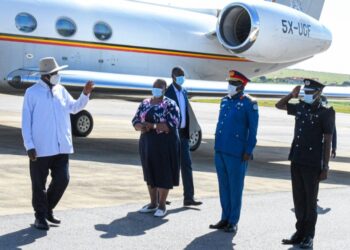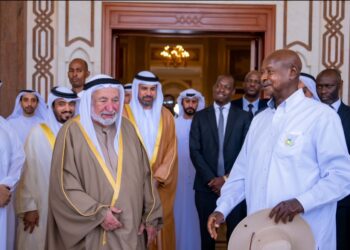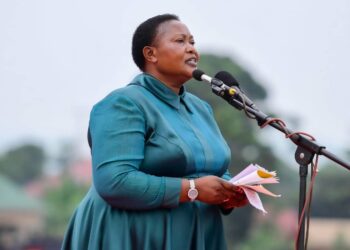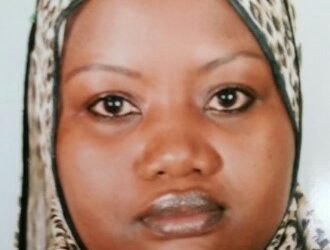Forum for African Women’s Educationalists Uganda Chapter (FAWE Uganda) in partnership with the Mastercard Foundation and the Forum for African Women’s Educationalists Regional Secretariat (FAWE RS) have today launched the Higher Education Access Program (HEAP) in Uganda.
This eight-year Program seeks to enable 300 young women and men from disadvantaged regions of Uganda access to education and leadership development, including transition to higher education or to secure employment in sectors that contribute to the development of their communities and the country.
The Higher Education Access Program is focused on providing bursaries to 300 academically gifted students from economically disadvantaged regions and districts of Uganda; the Northern region including; Adjumani, Amudat, Amuru, Kaabong and Pader; Eastern regions including Bukwo, Buyende, Katakwi and Mayuge; and, the Western region, including Buliisa, Bundibugyo, Kanungu and Ntoroko.
Ms. Christine Semambo Sempebwa, the Executive Director of FAWE Uganda said, “The Higher Education Access Program is a unique initiative aimed at giving a platform for all academically talented yet economically disadvantaged students an opportunity to study, realize their dreams and exploit their potential through increasing access to quality education in higher Institutions of learning.” She emphasized that, “The beneficiaries who have been enrolled should count themselves lucky, study very hard and get the best out of this opportunity while bearing in mind that although many students applied for the scholarship, a majority were not taken due to the limited number of slots.” This program offers 100% bursaries to learners and all you need to do is to take yourself to school and study which is a rear occurrence.”

She added that, “To guarantee success, the beneficiaries need to take the opportunity to learn from their peers on how to live responsibly, exercise self control and discipline, learn to prioritize and focus on their studies. As FAWE Uganda and other partners we commit to do whatever it takes to facilitate you to achieve all your planned goals.”
“The Mastercard Foundation supports this Program to provide access to quality higher education as well as a bridging program to provide a second chance at University education for promising students whose academic talent exceeds their financial resources into university degree programs. It will also provide academic and psycho-social support, and facilitate pathways for students to internships, industrial practice and employment”, said Peter Materu, Mastercard Foundation Director Education & Learning and Youth Livelihoods.

This program offers 100% bursaries to learners and targets 300 students between the ages of 18 to 25 over eight-years. 60% will undertake degree courses while 40% will be in diploma courses. The program is designed with focus on sciences, covering courses in agriculture, medical and health, whereas education related courses will focus on sciences and language. The Program is being implemented in partnership with 5 higher education institutions; Mbarara University of Science and Technology, Gulu University and Busitema University, Jinja School of Nursing and Midwifery, and Medical Laboratory Training School. Upon graduation, the students are encouraged to return to their communities to work and improve the lives of others by filling a critical human resources gap and contribute to economic development.
The program utilizes creative and innovative approaches like the Extended Orientation Program (EOP) to support disadvantaged students to settle in, compete favorably and successfully complete their studies. The pre-entry Bridging Program (BP) has been designed to give second chance opportunities to promising students whose pre-entry qualifications fall slightly below the cut-off points and whose academic potential is curtailed by the physical, academic and social inadequacies of their secondary schools. It will support them transition into undergraduate degree programs.

To ensure transparency and accountability, Regional Bursary Technical Committees (RBTCs) have been established and are charged with the responsibility of selecting, interviewing and enrolling beneficiary students. Similarly, Bursary Coordination Committees have been established in each of the five partner institutions to guarantee requisite higher completion rates.
Present at the launch, at Imperial Royale Hotel Kampala, were key stakeholders including; the beneficiary students, the line Ministries of Education and Sports, Science and Technology; Gender, Labour and Social Development, the Ministry of Health; Development partners, Civil Society Organizations and the media.
Do you have a story in your community or an opinion to share with us: Email us at editorial@watchdoguganda.com












